Personal Development (PHSE & RSE)
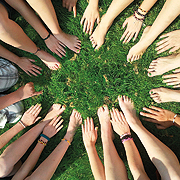
The Personal Development scheme of learning at Woodlands aims to give children the knowledge, skills, and attitudes that they need to effectively navigate the complexities of life in the 21st Century. The scheme of learning is delivered through Kapow and supported by the Shropshire Council ‘Respect Yourself’ programme of study. The curriculum covers key areas which will support children to make informed choices now and in the future around their health, safety, wellbeing, relationships, and financial matters and will support them in becoming confident individuals and active members of society.
The scheme covers the Relationships and Health Education statutory guidance (as set out by the Department for Education), including the non-statutory sex education. The scheme covers wider PSHE learning, in line with the requirement of the National curriculum (2014) that schools ‘should make provision for personal, social, health and economic education (PSHE).’ Children’s learning through this scheme would significantly contribute to their personal development as set out in the Ofsted Inspection Framework and promotes the four fundamental British values which reflect life in modern Britain: democracy; rule of law; respect and tolerance and individual liberty. The scheme does not specifically cover gender identity, although identity is a theme that runs through all year groups and units more generally.
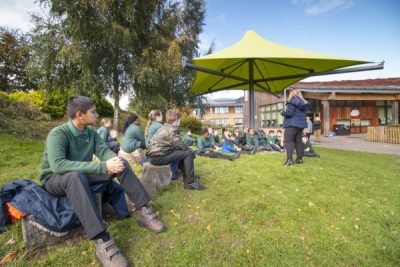 Quality PSHE and RSE teaching is an important element in helping schools to carry out their duty of care with regards to safeguarding. The Department of Education’s statutory ‘Keeping Children Safe in Education (Sep 2020)’ guidance states that ‘Governing bodies and proprietors should ensure that children are taught about safeguarding, including online safety. In response to the child-on-child abuse updates to Section 5 of Keeping Children Safe in Education (DfE, 2022), our curriculum introduces and revisits ideas of personal boundaries, consent and communicating our boundaries with others. This prepares pupils for the challenges and responsibilities they will face in the future.
Quality PSHE and RSE teaching is an important element in helping schools to carry out their duty of care with regards to safeguarding. The Department of Education’s statutory ‘Keeping Children Safe in Education (Sep 2020)’ guidance states that ‘Governing bodies and proprietors should ensure that children are taught about safeguarding, including online safety. In response to the child-on-child abuse updates to Section 5 of Keeping Children Safe in Education (DfE, 2022), our curriculum introduces and revisits ideas of personal boundaries, consent and communicating our boundaries with others. This prepares pupils for the challenges and responsibilities they will face in the future.
The implementation of the curriculum relates to how the learning is going to be delivered across our school, taking the intent of the learning, and translating it into a progressive and effective curriculum. The scheme is a whole school approach that consists of three areas of learning in EYFS: Reception (to match the EYFS Personal, social and emotional development prime area) and five areas of learning across Key stages 1 and 2.
EYFS
● Self-regulation
● Building relationships
● Managing self-care
Key stage 1 and 2:
● Families and relationships
● Health and wellbeing
● Safety and the changing body
● Citizenship
● Economic wellbeing
Each area is revisited to allow children to build on prior learning. The lessons also provide a progressive programme. The lessons are based upon the statutory requirements for Relationships and Health education, but where our lessons go beyond these requirements (primarily in the Citizenship and Economic wellbeing areas) they refer to the PSHE Association Programme of Study which is recommended by the DfE. Sex education has been included in line with the DfE recommendations and is covered in Year 6 of our scheme. The scheme supports the requirements of the Equality Act through direct teaching, for example learning about different families, the negative effect of stereotypes and celebrating differences, in addition to the inclusion of diverse teaching resources throughout the lessons.
A range of teaching and learning activities are used and are based on good practice in teaching RSE/PSHE education to ensure that all children can access learning and make progress. In key stage 1 and 2, there is an introductory lesson at the start of each year group which provides the opportunity for children and teachers to negotiate ground rules for the lessons. These introductory lessons can then be referred to throughout the year to help create a safe environment. All lessons include ideas for differentiation to stretch the most able learners and give additional support to those who need it. Many lessons, stories, scenarios, and video clips provide the opportunity for children to engage in real life and current topics in a safe and structured way. Role-play activities are also included to help children play out scenarios that they may find themselves in. There are meaningful opportunities for cross-curricular learning, with Computing for online safety and Science for growing, nutrition, teeth, diet and lifestyle. The scheme provides consistent messages throughout the age ranges including how and where to access help.
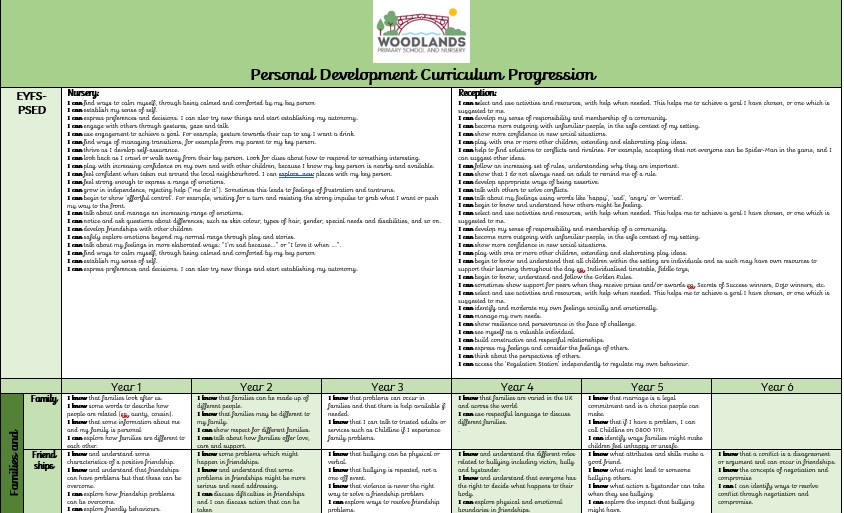
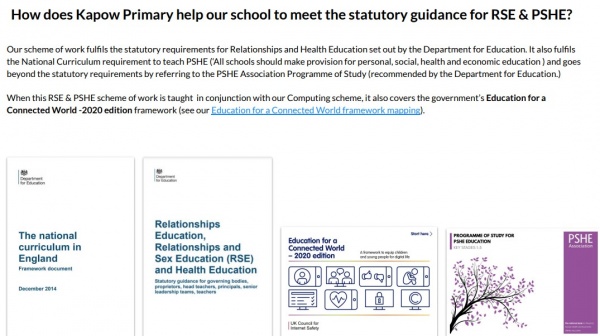
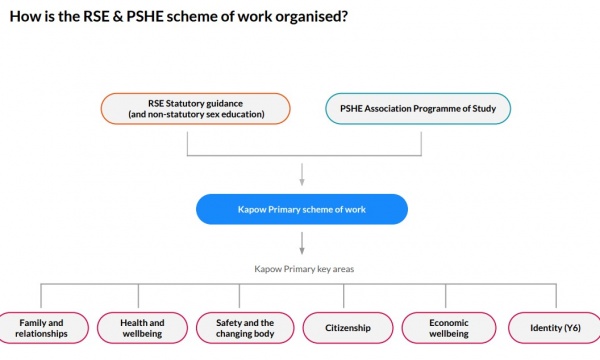
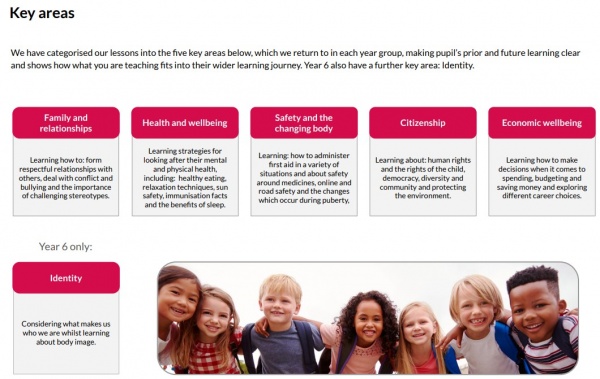
wellbeing curriculum overview autumn 18.pdf
RSE
We have based our school’s relationship and sex education policy on the statutory guidance from DfE issued under Section 80A of the Education Act 2002 and section 403 of the Education Act 1996. The Relationships Education, Relationships and Sex Education, and Health Education regulations 2019/2020 are made under sections 34 and 35 of the Children and Social Work Act 2017.
We refer to RSHE (Relationship, Sex and Health Education) and we place the emphasis on relationships and supporting pupils understanding and skill in developing positive and healthy relationships. Our definition is that this work is a lifelong learning process; it is about physical, moral and emotional development. It is about understanding the importance of marriage, stable and loving relationships, respect, love and care. It involves teaching about sex, sexuality and sexual health. It is not about the promotion of sexual identity or sexual activity.
RSHE in our school is part of the personal, social and health education curriculum. It is our belief that RSHE is the responsibility of all staff and should be an integral part of teaching and learning processes. Education for personal growth and self-esteem, including sex and health education, complements and overlaps with the personal, social and emotional development of the child and the general life of the school, relationships with one another, including staff and parents, socialisation, values and attitudes.






